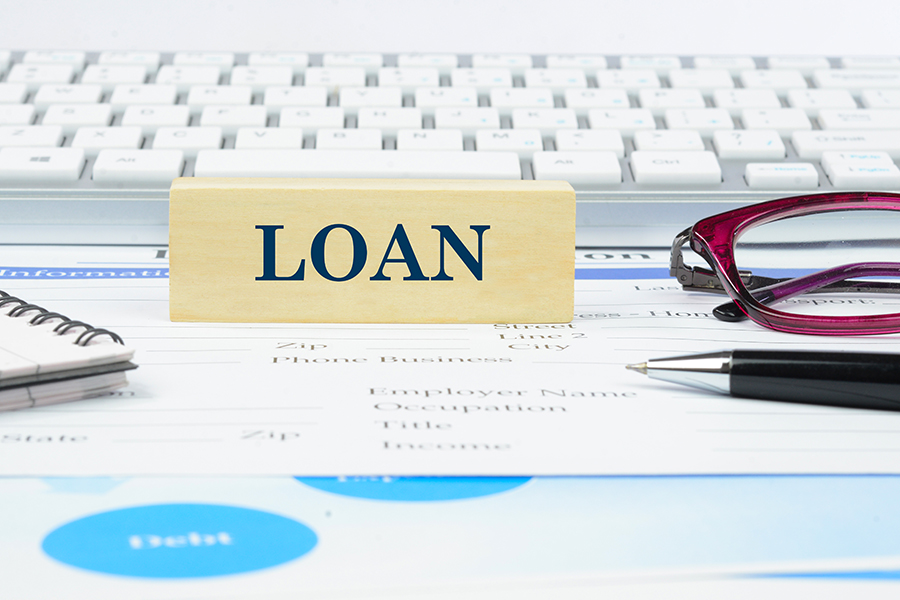Pre Approval Student Loans: What You Required to Know Before Applying
Pre Approval Student Loans: What You Required to Know Before Applying
Blog Article
Comprehending the Effect of Rates Of Interest on Home Loans for First-Time Buyers
Navigating the maze of home loans can be daunting for novice purchasers, specifically when passion prices play a pivotal role in shaping their financial journey. The choice between fixed and adjustable-rate mortgages brings substantial effects, influencing month-to-month spending plans and lasting economic stability. As rate of interest prices change with economic shifts, understanding their determination comes to be essential.
Just How Rate Of Interest Are Determined
When the central financial institution increases this price, borrowing comes to be much more pricey, frequently leading to raised home funding interest rates. Alternatively, lowering the federal funds price can make loaning more affordable, possibly decreasing home loan prices.
Another prominent variable is inflation. Higher rising cost of living typically results in greater rates of interest as lending institutions demand even more go back to counter the decreasing buying power of future payments. Financial development additionally plays an important function; in durations of durable economic performance, demand for credit scores rises, which can drive up interest rates.
Additionally, the bond market substantially impacts home loan prices. Lasting passion prices, including those for home financings, are closely tied to returns on federal government bonds. As bond yields increase, so do home loan rates, showing the enhanced expense of long-lasting borrowing.

Kinds of Interest Prices
Recognizing the various kinds of rate of interest rates is indispensable to understanding how home lendings operate. There are mainly 2 classifications of passion prices that borrowers run into: repaired and variable. A set rates of interest continues to be consistent throughout the term of the lending. This supplies predictability in regular monthly settlements, providing consumers with stability and convenience in budgeting. It is particularly valuable in environments where future rates of interest rises are anticipated.
On the other hand, a variable interest rate, likewise called a flexible price, fluctuates with time, generally in action to adjustments in a defined benchmark or index. These prices frequently start less than dealt with prices, which can be eye-catching to first-time customers. Nonetheless, they require the risk of increasing in time, potentially leading to higher general prices if market prices climb.
In addition, some lending institutions supply hybrid passion prices, integrating aspects of both fixed and variable prices. An initial duration with a set price may be followed by a variable rate. Recognizing these differences is vital for consumers to make enlightened choices that line up with their financial scenarios and take the chance of resistance, as each type offers prospective downsides and one-of-a-kind benefits.

Effect On Regular Monthly Payments
Month-to-month settlements on home fundings are directly influenced by the sort of rate of interest chosen, which can significantly influence a customer's economic planning. Fixed-rate home loans offer stability, as the passion rate continues to be unchanged over the financing's term, guaranteeing that month-to-month payments stay continuous. This predictability aids in spending plan preparation, offering a clear monetary image over the car loan's period. Conversely, variable-rate mortgages (ARMs) originally present lower rate of interest, which can bring about smaller first repayments. These prices are subject to variations based on market problems after the initial fixed duration, possibly boosting month-to-month commitments.
Fixed-rate financings secure against market volatility, providing tranquility of mind but commonly at a higher preliminary price compared to ARMs. On check it out the various other hand, ARMs might fit customers anticipating income development or those planning to sell prior to the rate modification takes place, allowing them to take advantage of on reduced settlements.
Long-term Financial Ramifications
The choice of passion price type for a home funding prolongs beyond immediate monthly settlements, lugging considerable long-lasting monetary implications. A fixed-rate mortgage, for instance, uses stability by locking in passion prices for the duration of the lending term, protecting consumers from future price boosts.
Conversely, an adjustable-rate mortgage (ARM) commonly starts with a lower rate of interest, which can result in reduced preliminary payments. With time, however, the price can change based on market problems, potentially bring about greater payments. This variability presents an aspect of unpredictability, which might impact economic stability if prices enhance dramatically.

Methods for Handling Rates
Browsing passion rates on home loans needs strategic preparation to maximize economic outcomes. New property buyers need to think about securing in interest rates when they are favorable, as this can secure them from prospective price walks before their financing closing.
Another method entails picking the best finance type. Fixed-rate home loans use security, safeguarding debtors from future price increases, while variable-rate mortgages (ARMs) might use reduced first rates with the risk of future modifications. Purchasers ought to carefully examine their economic scenario and risk tolerance when selecting in between these options (pre approval student loans).
Finally, keeping a solid credit profile is vital. A greater credit history can considerably enhance negotiation power for more beneficial rate of interest. Routinely evaluating credit history reports, dealing with inaccuracies, and reducing arrearage can boost general creditworthiness, thus positioning customers to safeguard the most beneficial prices available.
Conclusion
A thorough understanding of rates of interest on mortgage is essential for new customers to make informed decisions. Fixed-rate home loans supply stability with foreseeable payments, securing against future rate rises, while variable-rate mortgages present first cost savings with potential future price volatility. Examining the effect on month-to-month repayments and long-term monetary health permits purchasers to align selections with monetary goals and run the risk of tolerance. Strategic administration of rate of interest can substantially influence homeownership success and monetary well-being.
When the central financial institution raises this price, obtaining becomes a lot more costly, typically leading to increased home finance interest rates.In comparison, a variable passion rate, also understood as a flexible price, fluctuates over time, usually in feedback to adjustments in a specified benchmark or index.Additionally, some loan providers use hybrid passion prices, incorporating elements of both repaired and variable rates - pre approval student loans. A fixed-rate home link loan, for example, provides stability by securing in passion rates for the duration of the funding term, shielding image source borrowers from future rate increases. Novice property buyers ought to think about locking in rate of interest rates when they are favorable, as this can shield them from potential rate hikes prior to their loan closing
Report this page